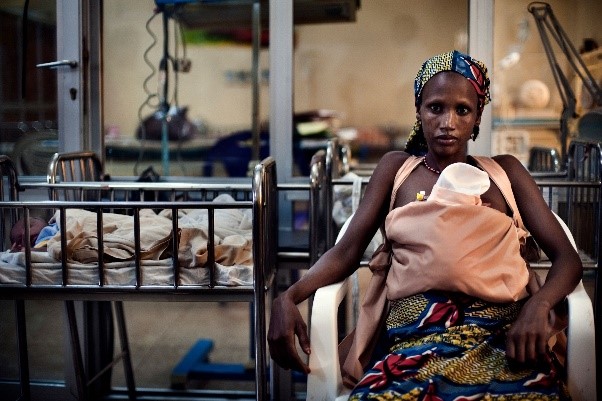AESA PROGRAMMES
- Building R&D Infrastructure
- Developing Excellence in Leadership, Training and Science in Africa (DELTAS Africa)
- Human Heredity and Health in Africa (H3Africa)
- Africa’s Scientific Priorities (ASP)
- Innovation & Entrepreneurship
- Grand Challenges Africa
- Grand Challenges Innovation Network
- Rising Research Leaders/Post-Docs
- AESA RISE Postdoctoral Fellowship Programme
- African Postdoctoral Training Initiative (APTI)
- Climate Impact Research Capacity and Leadership Enhancement (CIRCLE)
- Climate Research for Development (CR4D)
- Future Leaders – African Independent Research (FLAIR)
- Critical Gaps In Science
- Clinical Trials Community (CTC)
- Community & Public Engagement
- Mobility Schemes: Africa-India Mobility Fund
- Mobility Schemes: Science and Language Mobility Scheme Africa
- Research Management Programme in Africa (ReMPro Africa)
- Science Communication/Africa Science Desk (ASD)
- Financial Governance: Global Grant Community (GGC)
- AAS Open Research
- CARI Programmes
- Evidence Leaders Africa (ELA)

News
A Grand Challenges Africa Funding Opportunity: Using Data to improve Maternal, Neonatal and Child Health

163
A Grand Challenges Africa Funding Opportunity: Using Data to improve Maternal, Neonatal and Child Health
Globally, there is an ongoing burden of 5.4 million deaths annually, that includes neonatal deaths (2.5 million), stillbirths (2.6 million), and maternal deaths (0.3 million). Africa, with only 17% of the world’s population, carries nearly half of this burden with 2.3 million deaths per year. Based on current trends, most African countries may possibly not meet the United Nations Sustainable Development Goals’ target of 12 or fewer neonatal deaths per 1,000 live births and are also at risk of missing targets for maternal mortality reduction.
The African Academy of Sciences (The AAS), the South African Medical Research Council (SAMRC) and the Bill & Melinda Gates Foundation’s Knowledge Integration (Ki) initiative are collaborating to fund research that will use existing data to better understand risk factors for poor maternal, neonatal and child health (MNCH) outcomes in Africa. The call for proposals titled: Data science approaches to improve maternal, neonatal and child health in Africa opens today, 13 March 2019 and will close on 26 April 2019, 1700hrs EAT/2000hrs GMT
The funding will be given to scientists in Africa through The AAS’ funding and agenda setting platform, the Alliance for Accelerating Science in Africa (AESA) Grand Challenges Africa scheme. The call aims to increase the understanding of how nutrition, prenatal and antenatal care, maternal support, and environmental and social factors contribute to an increased risk of poor maternal and childhood health.
GC Africa promotes Africa-led scientific innovations to help countries better achieve the Sustainable Development Goals by awarding seed and full grants to the continent’s most impressive innovators. It is issuing its sixth call since the programme was launched in 2016.
The Bill & Melinda Gates Foundation’s Ki team and its partners will avail the Africa-Ki data repository, to scientists funded through the call to study and analyse data sets in a bid to provide evidence to inform interventions such as health policies that improve MNCH outcomes on the continent.
Data to be analysed will also come from African public health surveys, longitudinal observational studies, clinical trials, and other relevant data sources – including datasets combined from these public sources and the Africa-Ki data repository.
Funding will be given for two years to projects that:
- Promote interdisciplinary collaboration between African researchers, healthcare professionals, and data scientists to use innovative quantitative analytics and modeling approaches to yield results with a potential to significantly impact public health policy and address regional diversity
- Strengthen data science capacity on the continent
- Consider African genetic diversity by accessing genomics databases, gene sequences, genome-wide association studies, or genetic cohorts that include Africans
- Consider social, environmental and cultural determinants of outcomes and incorporate an understanding of the target community that includes barriers and constraints to delivery of interventions and to implementation of public health programmes
Further information about this funding opportunity on data science approaches to improve maternal, neonatal and child health in Africa is outlined below
- The call for proposals is accessible via https://aesa.ac.ke/aesa/en/programmes/grand-challenges-africa/funding-opportunities/
- Applications must be submitted by 26 April 2019 1700hrs EAT/2000hrs GMT through The AAS Ishango Online System accessed through the call link above
- Please contact GCAfrica@aasciences.ac.ke for any enquiries regarding the call
- The Gates Foundation’s Ki team has established a website to share additional information that may be helpful to applicants as they prepare their proposals. The following link provides access to the website: https://www.synapse.org/Ki_GCAfrica_MNCH_DataCall